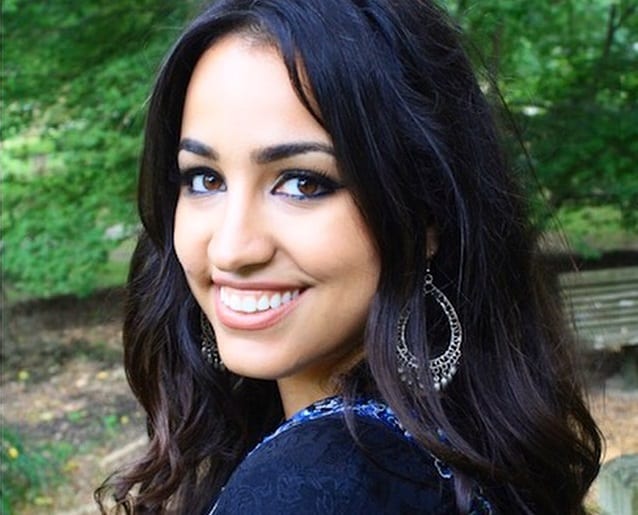For the Algerian-born Parisian poet, Hocine Tandjaoui, the memory of the Algerian War of Independence, and the personal biography that shapes it, is best relayed through poetry. His genre-bending book, Clamor, uses the medium of poetry and the trigger of sound—specifically the discordant cacophony of war—to place readers in the place of a child whose coming of age was malignantly impacted by the soundscape of a colonised Algeria. It begins when Tandjaoui is five years old, the age of his first recollection of colonisation and the war that broke out in response. The violence could only be described as such: “This was a country that transformed some of the humans that occupied it into half-gods, whereas the others were reduced to subjects without rights, their humiliation manufactured daily” and then, “all wars are civil wars, all wars are fratricidal wars, women and men planning the murder of other women and men, even when the humiliated decide to get rid of the half-gods.” Such is the nature of war; though it is an act between one human against another, it is definitively marked by inhumanity, at least that is the element that stands out to Tandjaoui as he visits his childhood memories in retrospect.
As a child, he captures memories in the same way that one would capture sound. He “records” the absolute and pervasive nature of the French colonial military establishment in his birthplace, the northwestern city Biskra, which has cemented itself as a garrison city in Algerian history owing to its critical location. Many empires, conquests and invaders have passed through these roads, but perhaps, none as aggressive as the French. This is the sense that the reader is left with, one of disillusionment and disbelief at the entrenched level of violence passing through city and country, right before the child’s eyes. It is in the nonsensical nature of war, how its brutality fails to be captured fully by any language, that gives way to Tandjaoui’s experience with Algeria’s wartime sounds; a discordant cacophony of radio broadcasts and warnings puncturing his eardrums through loudspeakers, but also music and melodies, curing the blue hues of wartime through the blues-iness of soulful music. The sounds of wartime Algeria are defined by sirens, alarms and gunshots as well as the ebb and flow of local and global music, from Mohamed Abdel Wahab and the “nightingale of Arabic music” Abdel Halim Hafez to Edith Piaf and Sydney Poitier to Aretha Franklin and Billie Holiday. The fusion of Arab, French and rhythm and soul from the heartland of Black America likewise mirror the Algerian revolutionary tradition; transnational in its essence and mutually informed and informative in Arab and Global South traditions of resistance.
REVIEW: Signs of diplomatic crisis between Algeria, France over activist’s flight
For Tandjaoui, the power of poetry is such that it feels like a never-ending potential for clash and conflict, the fusing together of French, English and Arabic, through music and sound or otherwise, gives way to a phenomena that can only be contended with through “storytelling’s infinite capacities”, a catharsis from the invasion of sound, one that is only made possible once it is distilled through the written word.
In his introduction to the collection, Tandjaoui writes of his wonder, indeed of his suspicion as to how a lived experience, one that felt very specific to his childhood and to Algeria more broadly, could ever be translated. He asks: “Would the image of a musical deluge pouring out of loudspeakers sufficiently translate that lived experience to an English-speaking audience? Is translation, in this case, sufficient and capable of relaying the specificity of this traumatic experience?”
“Not everyone is born in the midst of gambling dens and sidewalk cafés, in the musical bath of colonial society, an aggregation of predators, a slice of the city that brings together the circus, the market, the barracks, and the inextinguishable thirst that men and women have to meet one another.”
On the part of this reviewer, I think translation does suffice and it does, in fact, democratise and open access to this experience even if that access is rendered second-hand. Through this collection and its translation, it becomes evident that the dialing back and forth of the radio’s knob is more than a device’s control, it likewise gives the individual a semblance of control over what, momentarily, will enter his soundscape. Throughout the collection, Tandjaoui laments the banality of the colonial city; it mimics a chess board that is specifically designed to facilitate the execution of military activity. In this sense, the everyday routine and nature of war informs the author’s emotional capacity in that it is triggered by sound as well as soothed and informed by it. Here, soundscape opens the author up to the world in an otherwise limited landscape: Algerian, Arab and Mediterranean but also Black American music and the beat of the Global South. As such, this is a story of transnational solidarities at play in the 1950s and 60s, in the midst of decolonisation and on the eve of liberation.
From a technical standpoint, the collection offers the reader a bilingual edition: the text is available in both French and English. The translators of the collection, Olivia Harrison and Teresa Villa-Ignacio, have given the reader a decolonial narrative that is as compelling and urgent in English as it is in its original language. The poetry collection is also accompanied by a discography, which is contextualised by the editors/translators.
REVIEW: Ida in the Middle

![Clamor front cover [litmuspress]](https://i0.wp.com/www.middleeastmonitor.com/wp-content/uploads/2023/02/FINAL_Clamor_Front-Cover_for-web-300x450-1.jpg?fit=300%2C450&ssl=1)







